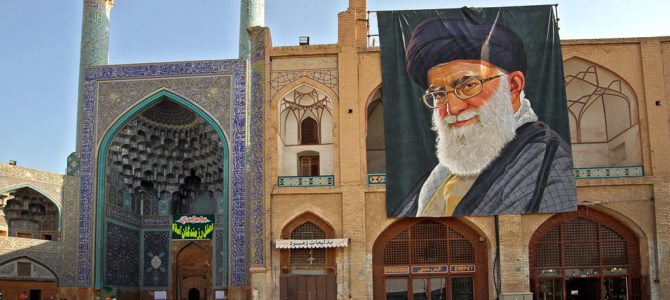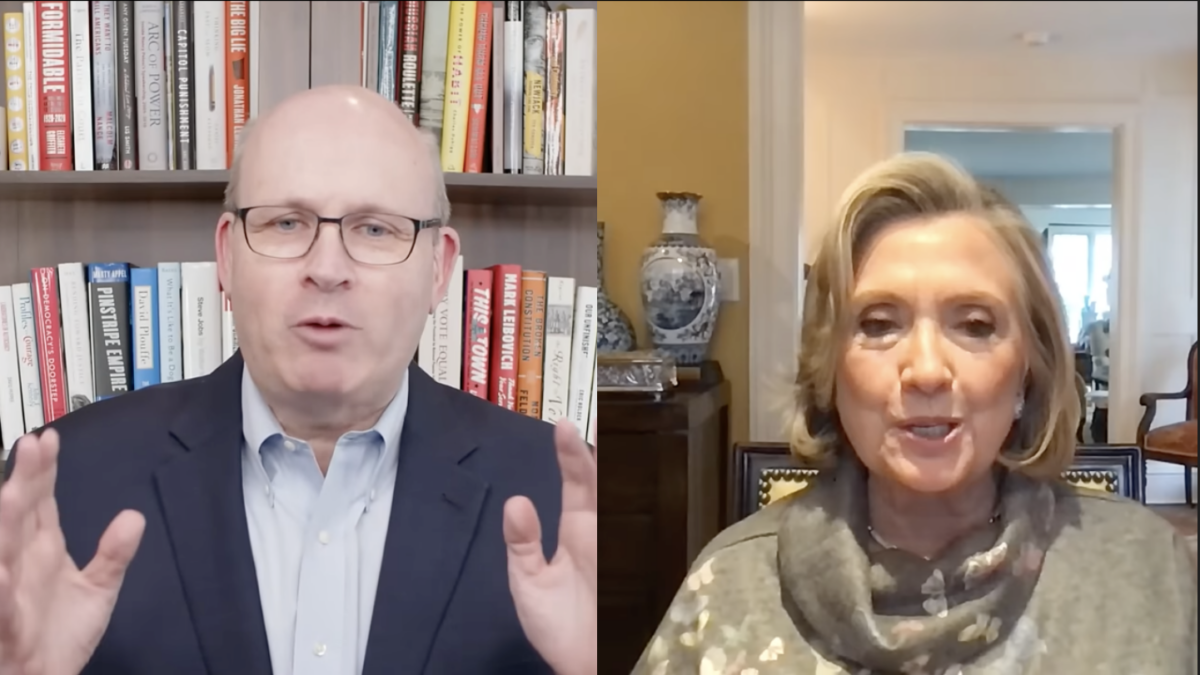
It appears President Trump doesn’t want to go to war with Iran, and is not happy about his administration’s rush to conflict. While leaks are to be taken with skepticism, there is almost uniformity of daily reports that state Trump is frustrated that “some” in his administration are pushing for a war with Iran, without him even knowing about it.
“‘He is not comfortable with all this ‘regime change’ talk,’ which to his ears echoes the discussion of removing Iraqi President Saddam Hussein before the 2003 U.S. invasion, said the official, who like others spoke on the condition of anonymity to discuss private deliberations,” The Washington Post reported.
“President Trump has sought to put the brakes on a brewing confrontation with Iran in recent days, telling the acting defense secretary, Patrick Shanahan, that he does not want to go to war with Iran, administration officials said, while his senior diplomats began searching for ways to defuse the tensions,” The New York Times echoed, adding that this “sent a message to his hawkish aides that he does not want the intensifying American pressure campaign against the Iranians to explode into open conflict.”
Finally, the Wall Street Journal reported that “Intelligence collected by the U.S. government shows Iran’s leaders believe the U.S. planned to attack them, prompting preparation by Tehran for possible counterstrikes, according to one interpretation of the information, people familiar with the matter said.”
In short, the Iranians miscalculated U.S. belligerence and reacted, which Washington DC in turn miscalculated, which resulted in troop build-ups, further terrifying Iran. In international relations, we call this a classic “security dilemma” spiral.
While Trump might not be knowledgeable about the day to day understanding of international relations, he is still broadly instinctively non-interventionist. Some might say that Trump is not, because his administration is rushing to conflict in Venezuela and Iran. The current reports, however, reinforce the view that Trump doesn’t want foreign conflict. He knows that he ran against stupid Middle Eastern wars, and it would be an electoral catastrophe if he ends up in another after three years of avoiding it.
Consider Trump’s election rally in February 2016 in South Carolina. As Tucker Carlson writes in his most recent book, Trump charted a different path, not only from his fellow Republicans but also from all the Democrats.
Trump articulated something that no party leader had ever said out loud. ‘We should never have been in Iraq,’ Trump announced, his voice rising. ‘We have destabilized the Middle East.’ Many in the crowd booed, but Trump kept going: ‘They lied. They said there were weapons of mass destruction. There were none. And they knew there were none.’ Pandemonium seemed to erupt in the hall, and on television. Shocked political analysts declared that the Trump presidential effort had just euthanized itself.
In his campaign, Trump not only differentiated himself from the Democrat liberal interventionists, but also with standard muscular Republican dogma since the early 1990s. Optimism was out, Nixonian prudence was in.
So why is an instinctively non-interventionist president, who wants to retrench from stupid wars in strategic black holes and focus on rival great powers like China, being surrounded by uber-hawks still hell-bent on promoting democracy in feudal societies? It is not difficult to actually understand just who is pushing for a war with Iran. To paraphrase Bob Gates, the Saudis will fight the Iranians to the last American.
Trump ostensibly knows that. David Frum, a George Bush speechwriter post-9/11, knows that. No Trump supporter, he still warned against any further Middle East misadventure, given his own experience. Even Financial Times, which has for the last three years harrumphed about Trump, accepted that maybe Trump is on the money here about further interventions, which have so far only complicated the situation rather than solving it.
The problem lies with the critiques. When Trump won the election against the wishes and predictions of practically everyone in the strategic community, most of the conservative foreign policy realists, who since the beginning of time had been advocating for a more restrained approach, declined to join the administration, or reach out and shape policy. What were they waiting for, a pristine messiah with divine grace and Victorian propriety? Not very “realist,” is it?
The hyperfocus on Trump’s personal behavior was absurd to someone like me, who lives in Europe, given that one doesn’t need to go even before the Second World War to find other presidents who were much cruder than Trumpian rhetoric. Forget Bill Clinton’s behavior in the Oval Office. No one would ever question the patriotism of John F. Kennedy or Richard Nixon, even when their personal lives wouldn’t stand a chance against current social media scrutiny. Yet, for some reason, Trump is considered uniquely uncouth due to his New York real estate verbosity.
But the new national conservatism that focused on realpolitik instead of moral posturing had the perfect opportunity to shape a new course. Détente with North Korea, retrenchment from the Middle East, and burden-sharing in Europe, are all classical conservative and realist positions, and it helps focus on the primary threat to Western interests: the rise of China.
Instead, those of us watching the Blob (and research suggests there is a Blob) saw an instinctively non-interventionist president, besieged with a stupid Russia collusion narrative, without any brains trust of actual foreign policy restrainers who instead chose to stay in the academic ivory towers to harrumph some more. So he became surrounded instead by interventionists, leading to another fruitless escalation. There might not be a war, but there just might. And that is reckless.
There’s no question that Iran is not a benevolent country. But Iran’s rhetoric should not be confused with reality. Iran is bleeding dry, spread out from Tehran to Tartous. Its economy is in free fall, and its client states in Damascus and even Baghdad are both wobbly. It is waging a proxy war with Saudi Arabia, in Yemen.
The ultimate aim of a small-scale dictator is the survival of his own regime and system, and Iranian ayatollahs know, more than anyone else, that any recklessness from them can provoke a devastating counter-reaction that will wipe their country from the face of the earth. There is academic evidence as well as intel assessment showing Iranian fear and restraint.
While Persia has been the historic hegemon of the Middle East, and not Arabs, modern Iran is in no position to aspire for regional hegemony. They can do mischief, but they simply don’t have the manpower and material capability for regional domination, much less global domination.
An ideal American policy would be to play the role of an “offshore balancer,” like the British empire in 19th-century Europe. Put simply, sell as many weapons to whoever is going to buy, stay out of any direct conflict as long as the sea routes are open, and unless a regional hegemon rises and tries any expansionism, let local actors duke it out with their own blood and treasure.
Trump might not be Lord Palmerston or John Quincy Adams, but he understands that never-ending wars in the Middle East are stupid—especially when there’s a gigantic threat in the eastern horizon, a former Cold War rival returning to Cold War form after 20 years of liberal optimism and utopia.
He appears to have forgotten is that he is, in fact, the president, the chief executive of the republic, and there can be no wars without his explicit authorization, even though there might very well be people within his administration with their own agenda clandestinely trying to sleepwalk into another regime-changing chaos. Someone forward him this column, and remind him that.








